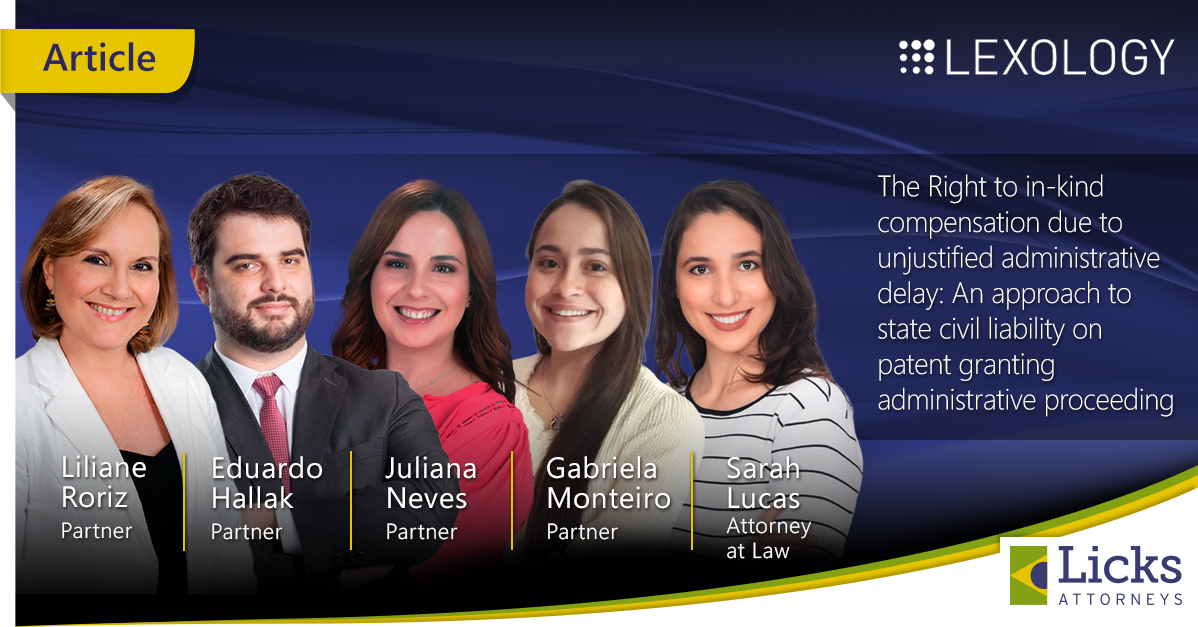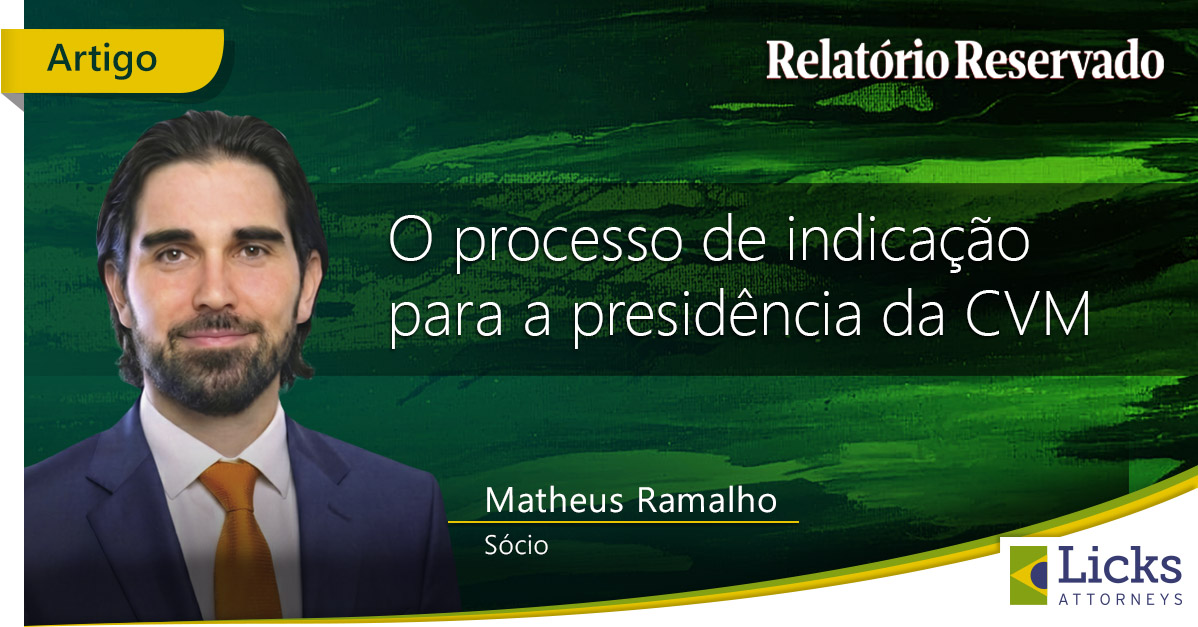Brazilian Patent Statute under attack: an overview of what may change (Part I)
by Liliane Roriz and Viviane Trojan The IP community has been following with expectation the legislative process of the bills for the reform of the Brazilian Patent Statute (Law #9,279/96). Over the past two years, the pro-reform movement has gained strength, but these challenges are not new. The first bill seeking to amend the Patent Statute, Bill 2920 (“PL 2920/1997”), was proposed on April 1, 1997, less than one year after Law #9,279/96 had been approved and before most of its provisions had entered into force. Such bill intends to change provisions on the remuneration system of inventions made by employees, entitling these workers to 50% of the net profit resulting from the commercialization of inventions made with their personal contribution. In 1999, bill 139 (“PL 139/2009”) introduced changes in articles 43 (international exhaustion of patent rights) and 68 (compulsory license) of the Patent Statute. According to the proposed changes, the rights conferred by a patent would not extend to “a product manufactured in accordance with a process or product patent that has been placed on the internal or external market directly by the patentee or with his consent”. The current Patent Statute only refers to the national exhaustion. With regard to compulsory licenses, the Patent Statute currently does not allow their granting in case of non-exploitation of the subject matter of the patent in Brazil due to economic infeasibility, when importation is admitted. If bill 139 is approved, compulsory licenses can be granted even in such cases. Currently, there are more than 30 bills aiming at modifying the Patent Statute pending before the House of Representatives (“Câmara dos Deputados”, also known as Chamber of Deputies). All the bills seeking to amend the Patent Statute can be seen in the timeline below. If you are having trouble viewing this timeline, click here.

All the bills included in the timeline seek to amend the patent statute. This timeline does not include bills removed by their sponsors or already approved and signed into laws. Current as of March 2, 2015

Such amount of bills may wrongly convey the impression that the current Patent Statute is outdated. However, it is important to note that Law # 9,279/96 was approved after intense debate in both Chambers of the National Congress. Originally conceived in the House of Representatives as bill 824/91, the Patent Statute faced more than 1,300 amendments until being finally approved in 1996. Click here to see a timeline with the legislative process of Law #9.279/96. The debates on the reform of the Patent Statute have ignited within the IP community mainly after the proposal of bill 5402 in 2013 (“PL 5402/2013”). Resulting from a study commissioned by members of the House of Representatives, this bill intends to implement important changes to the Brazilian Patent System, such as:
- revoking the provision that guarantees a 10-year term from the date of grant whenever the examination takes more than a decade, limiting the protection to 20 years from filing;
- prohibiting second medical use patents and new forms of substances;
- increasing the standard of inventive step;
- adopting a pre-grant opposition mechanism, allowing third parties to participate in patent proceedings before the patent is granted;
- strengthening ANVISA’s powers to deny pharmaceutical patents in the prior approval examination;
- avoiding data exclusivity and establishing that the use, by government bodies, of test results or other undisclosed data, for market approval of products equivalent to the product for which the tests were submitted, is not a crime of unfair competition (article 195); and
- adopting the non-commercial public use, giving the State the right to use, or authorize the use by third parties in their name and for specific non-commercial ends, any patent granted, after communicating the patent holder and fixing proper remuneration.
According to the justification submitted to the House of Representatives by the sponsors of the bill, the suggested changes would aim at promoting innovation towards national competitiveness, which would be possible through a series of limitations to the patent rights under the current patent statute. At this point, it is very important to remember that foreigners have the same rights that Brazilians, as regards the protection of industrial property. According to Article 2 of the Paris Convention for the Protection of Industrial Property (CUP), enacted by Decree 1.263/94, nationals of any country of the Union have the right to be treated as a national, having the same legal treatment granted by the law to Brazilian companies. Moreover, Brazilian Courts frequently decide and maintain IP rights, thus, even if the patent statute faces all these amendments, which is not expected, eventual abuses or violations to patent rights can be discussed before the Brazilian Courts. The above-mentioned bill, and all others that intend to restrict patent rights without considering the drastic consequences it may cause, received severe criticism from patent attorneys in Brazil. Limiting the patent term to 20 years, banning patentability of second medical use inventions, increasing the standard for inventive step and strengthening ANVISA’s powers to deny pharmaceutical patents in the prior approval examination may not be the most appropriate way of promoting innovation in the national landscape. It is important to clarify that restrictions will also affect national inventors and not only foreign “competitors”. Any issue related to a reform of the current patent statute shall be treated from the most diverse standpoints. All the IP community shall be heard and, specially, representatives from scientific and technology sectors – not only selected representatives of sectors with commercial interests in the reform. In our next newsletters, we are going to discuss the changes proposed in the bills for reforming the patent statute in detail. Do not miss our next issue. If you have any questions or need additional information, please contact us at prevail@localhost/licks/site.
RECENT PUBLICATIONS
-

The Right to in-kind compensation due to unjustified administrative delay: An approach to state civil liability on patent granting administrative proceeding
February 23, 2026 -

Acordo de proteção de dados Brasil-UE: O que muda para as empresas?
February 19, 2026 -

A indicação de Otto Lobo para a presidência da CVM
February 13, 2026

